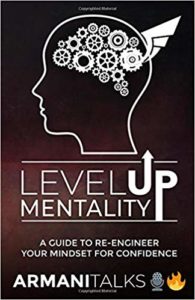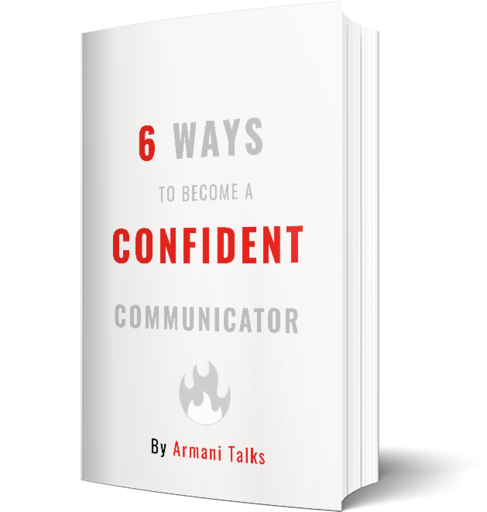2 Crucial Skills Needed to Be a Great Writer
There are a lot of parts to being a writer.
You need to be able to:
- Think of a topic.
- Write the rough draft.
- Clean up the rough draft.
- Edit.
- Proofread.
- Publish.
Each stage comes with its unique challenges.
I can simplify the skills even more.
Without it, the field of writing wouldn’t exist.
Can you guess what the 2 crucial skills are?
‘Uh… No clue.’
Observe and prioritize.
Observation Skills
The most important thing for a writer is observation skills.
Have the ability to notice the magic in the mundane and magic in the magic.
If a writer has bad observation skills, then I know they are copying others a lot.
I hate the quote that “great artists steal.”
It encourages lazy thinking.
This type of thinking dulls one’s observation skills.
I say that “good artists steal, while great artists are inspired.”
They are inspired by the world.
There are 2 types of sensitivity out there.
- The bad sensitivity – Crying because someone called you a mean name.
- The good sensitivity – Being hyper-alert of your surroundings.
When you have good sensitivity, you’ll notice things that others are blind to.
Others are living their “ordinary life”, while you are constantly finding new writing material.
Prioritize
The next skill to being a great writer is knowing how to prioritize.
There’s a saying called “killing your babies.”
Which means you need to know which lines to destroy.
If I tell a person to list out everything they have observed for the day, they’ll be yapping away for a while.
That’s what most “writers” do.
They yap, but they don’t write.
A great writer knows how to prioritize what’s important vs what’s less important.
That’s what makes things tricky.
During writing, you will be asking yourself:
‘What’s important and what’s not as important?’
When you ask that question, you’ll be forced to exercise your critical thinking skills and your ability to create a narrative will get polished.
In the beginning, a writer is filled with entropy.
They are yapping away talking about all their observations.
There is no spine to their observations.
After much practice, the entropy lowers, and information takes its place.
There is a spine.
The writing has a theme that glues all the random observations together.
Soon, a great writer emerges.
Fun Exercise to Improve Your Writing Skills
A great writer is not born from only positivity.
They are born from spinning negativity into positivity.
Try the following exercise.
- Find a pet peeve of yours.
A pet peeve is a minor annoyance.
One of my pet peeves is slow walkers.
I can’t stand it when people walk slowly in front of me.
- Once you spot a pet peeve, next up:
- Make a joke about it.
- Create a resolution for it.
I thought of a resolution for slow walkers once.
You know how they have 3 lanes on driving roads?
The people in the left lane drive the fastest, middle lane drives at an average pace, and the right lane is for the slow drivers.
Well, why not create a similar concept for walkways??
Make these walkways wide and create 3 lanes.
The slow walkers can walk in the right lane, while I breeze through the left lane.
Sounds like a good idea to me!!
Obviously, I’m having some fun with this.
I’m not expecting the walkways to miraculously get bigger.
However, the fundamental point of the exercise exists.
I’m spinning negative moments into positive insights.
- Spot a pet peeve (negative).
- Turn it into a joke or resolution (positive).
Need to Put in The Reps
All great writers put in a lot of reps.
They have published 1000s of works.
Maybe 1 to 6 entries goes viral.
Did you know Stephen Curry shoots 500 3-point shots a day?
He’s made millions of shots in practice.
That’s surreal.
However, in the game, his goal is to make a couple of hundreds for the season.
That’s what he gets paid millions of dollars to do.
Practice millions when the lights are dimmed.
Make 100s are when the lights are bright.
Writers are like that.
They need to put their reps behind the scenes.
Start to build a passion for writing.
In the beginning, it’ll feel like a chore.
It’ll feel like a chore because you don’t have any processes and frameworks.
The more that you practice, the more that you’ll build a rhythm.
Once the rhythm is on your side, you’ll want to write.
Let’s make sure we aren’t relying on rhythm alone.
We need to build a simple schedule.
Be a Pro
The difference between a pro and an amateur is that the pro works whether he wants to or not, while the amateur only works when he wants to.
Be a pro.
Create a simple writing schedule and follow it.
It can be very general.
- Write the first thing in the morning.
- Write at night.
- Or write at a specific time.
I write as soon as I wake up.
This allows me to release dopamine from the get-go.
Dopamine is not always bad.
It’s not always associated with drugs.
A positive way to release dopamine in the brain is to:
- Create a rule for yourself.
- Execute the rule.
Create a rule for when you will write.
Then follow it to the tee.
Observe & Prioritize
Writing skills age like fine wine.
Professional athletes who play physical sports have a shelf life.
Around age 40, most of them will be out of the league.
For writers, that’s not the case.
You can write on the internet for decades.
Once you master the craft of writing, you can build basic business skills and create an empire around you!
- Write books, blogs, tweets, guest posts and much more!
The more you work on your brand, the more your brand grows and works for you.
All writers have 2 things in common.
They know how to observe, and they know how to prioritize.
Other than that, they are consistent as hell.
For more tips & strategies for writing, check out the Prolific Writer Book
✍️ Ebook
✍️ Paperback/Kindle
✍️ Audiobook






